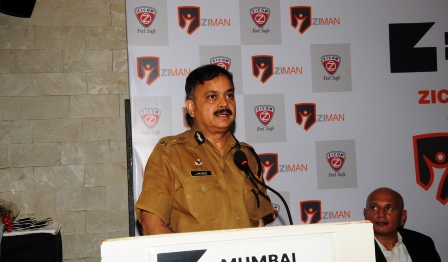This unique initiative aims to provide counselling for parents of 2 to 12-year-old children and discuss solutions to behavioural issues.
by The Editors | editor@themetrognome.in
Raising children in today’s world is nothing short of a challenge. With children more and more entranced by technology and drifting away from their parents, it is becoming impossible to find out if one’s child is battling some private issues or if he needs help in any way.
That’s where a new pilot project aimed at helping such harried parents in Mumbai comes in.
Parisar Asha is a 33 year non-profit registered public trust committed to serve children through a unique learning approach ‘ESAL’- The Environmental Studies Approach to Learning. It was founded by the late Gloria de Souza, an Ashoka fellow with a mission to provide a joyful, holistic and child-centric environment-based quality education to empower children to be creative, sensitive and successful global citizens.
After working in the field of education for the past 33 years, Parisar Asha has realised that parents are also an integral part of the school space and it is also important to look into their well-being for the sustainability of the mission. Numerous close encounters with the parents have helped certain common problems come to the fore, oftne expressed in such terms as “I don’t know how to handle my child”, “I get a lot of complaints from the teacher about his non-performance in the class”, “It is always a tussle to meet our needs but still understanding the importance of education, I somehow manage my resources to send him to a good tuition class”.
These are few of the examples of parental woes that Parisar Asha’s CEO Aarati Savur talks about. She says the list is endless. “So we decided to extend support for these troubled parents by providing them with a helping friend who is always a call away. This will help resolve their problems and provide them with solutions. This unique initiative is known as ‘Positive Parent Helpline’. This is a pilot project, in which Parisar Asha’s expert counsellors provide free and confidential telephonic solutions to all child related issues between 2 to 12 years.
Abnormal behaviour has become a common phenomenon among children who are reared in normal family conditions and this is causing panic among parents. Continuous interaction with children and parents have led counsellors to deduce that often parents’ behaviour towards their children determine the children’s behaviour. Additionally, environment plays an important part in moulding an individual’s behaviour and one’s personality gets carved based on his/her interaction with his/her physical, social and emotional environment.
The ‘ Positive Parenting Helpline’ is a free and confidential online and telephonic service which can be availed by parents to seek help for their children between age group 2 to 12 years. This service is available between Monday to Friday from 9 am to 5 pm. Parents can call or send an sms at 8828233443. All queries will be resolved by expert counsellors. Parents can also email their queries at info@parisarasha.org / pahelpline@gmail.com
(Picture courtesy ldforumforschools.in. Image used for representational purpose only)







